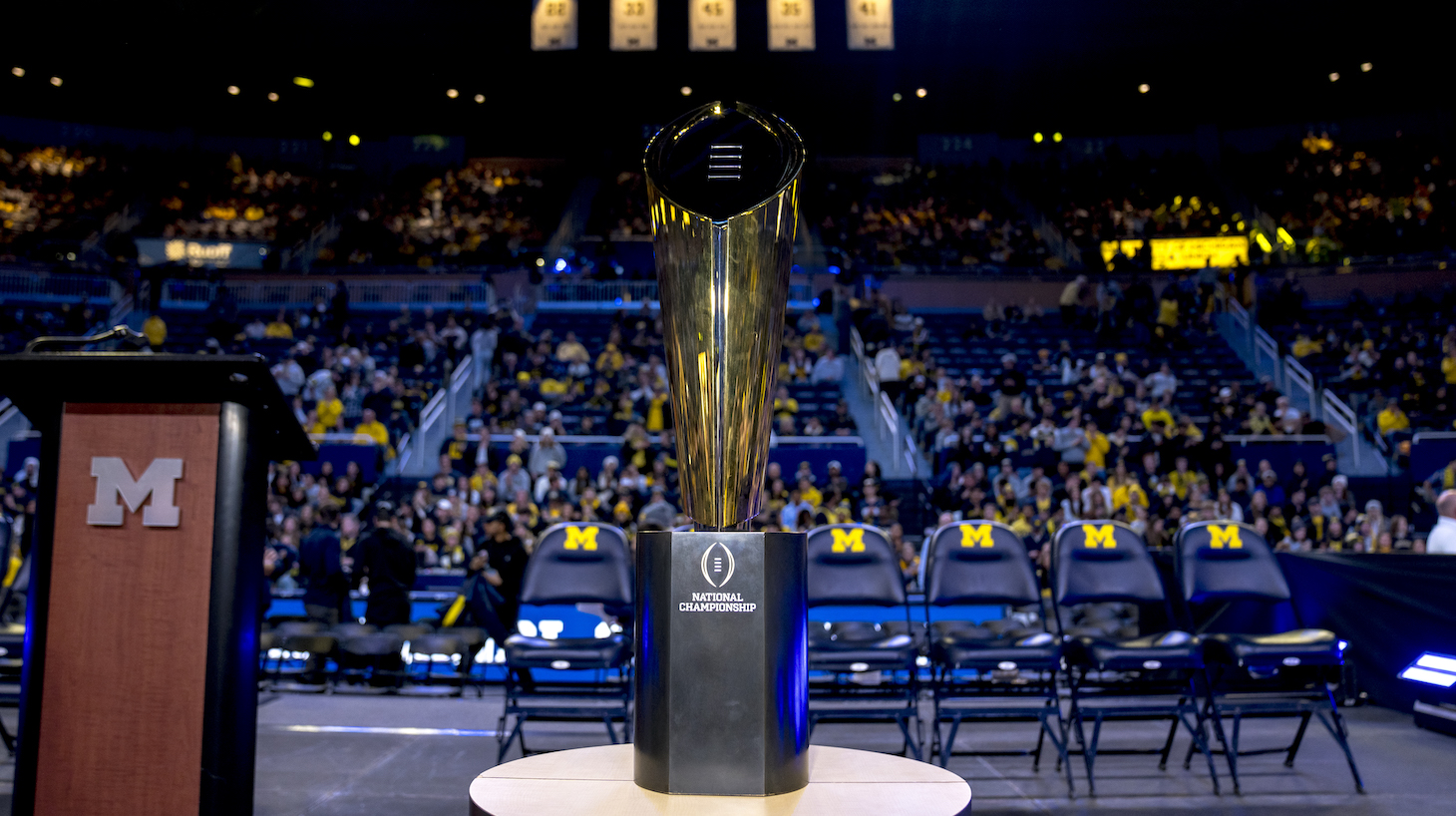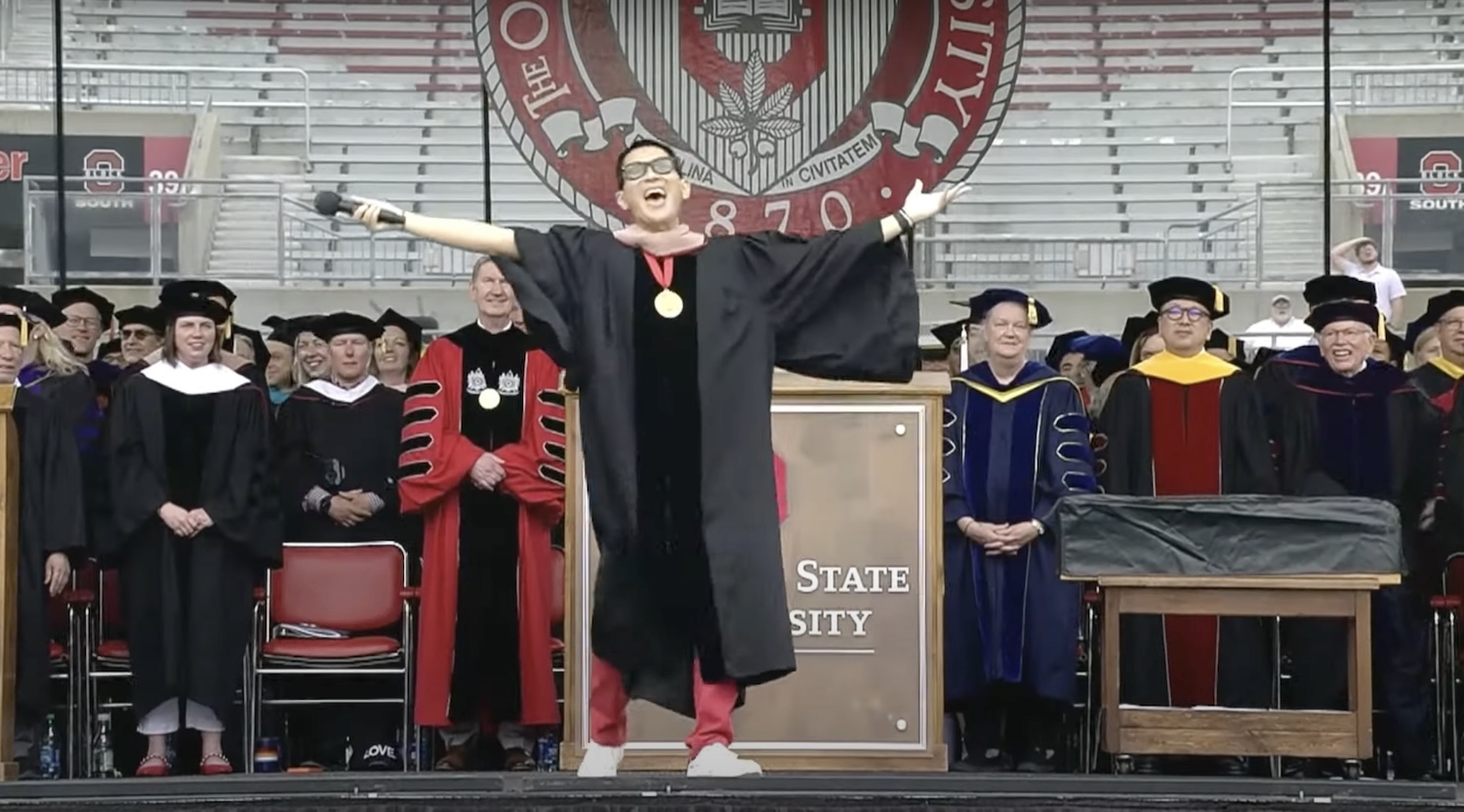College Football “Super League” Likely To Join Its European Cousin In The Graveyard Of Ideas
12:04 PM EDT on April 4, 2024

Nothing has ever been quite as alluring to the American sports fan as the idea of promotion and relegation, and nothing has ever been more repellent to the people who actually run sports than the idea of promotion and relegation. Merit as a guide to increased profitability is always an appealing notion as well as quality entertainment, though not as appealing as already being rich and never having to worry about merit, or entertainment.
Thus, the news, as delivered by noted typists and irritants to power Stewart Mandel and Andrew Marchand of The Athletic, is that powerful people are gathering to try and save the insular world of college football from its own eventual extinction by conjuring a form of pro/rel. They wrap it in dire warnings from academics, who have no leverage, and excited voices from other self-styled big thinkers, and use the lure of something fans would love to convince the powerful people who don't love it to do something for someone other than themselves.
Those poor, gormless naifs.
The details are here, and you should read them if only to fool your boss into thinking you're studying the first-quarter earnings/layoffs charts, but the core is this: College football, which is separate from college and all other forms of athletics, should realign to create a two-tiered system that allows for 72 permanent schools (the 70 schools of the five major conferences, plus Notre Dame and Southern Methodist) who can never be relegated no matter how much they deteriorate, and then a second group of the remaining 50-some-odd who could fight annually for a place at the end of the banquet table and would rise and fall each year based on performance.
It's essentially the European Super League idea that was beaten down three years ago by numerous fan revolts but keeps rising its scaly head every time Real Madrid president Florentino Pérez looks at a bank statement and feels his intestines climb out his throat. On its face it seems only slightly less batshit crazy than the current system, which at first glance is no system at all. Indeed, one of its principal tenets is doing away with the NCAA, which is already irrelevant to the process anyway, the equivalent of saying "I can fix the Middle East if only we can get rid of the Ottoman Empire."
But here's where the plan—which would create a single entity to negotiate with the networks when the current deals expire in 2030, while contending with a trainload of lawsuits that could leave everyone bankrupt and playing their games on gravel lots in western Wyoming—breaks down. The people who actually own college football right now, the Southeastern and Big Ten Conferences, don't want 70 teams. They want maybe 50, and, no matter what they say, they are not averse to getting rid of some of their own legacy schools and replacing them with other cash cows to keep bigger slices of whatever pie gets baked.
They don't need promotion or relegation. They need the new status quo that they made, with themselves atop the pile, to be first in line at the network troughs, which is to say that Alabama and Ohio State do not have to give a toss about Texas Tech or Wake Forest and intend never to do so.
So when Syracuse chancellor Kent Syverud tells Mandel and Marchand, “The current model for governing and managing college athletics is dead,” the logical response is, "No poop there, Sherlock. It got killed when the Pac-12 blew its own legs off." And when West Virginia president Gordon Gee says, “We are in an existential crisis,” SEC commissioner Greg Sankey can be imagined saying, "No, YOU'RE in an existential crisis. We're doing swell. Now get off my lawn or I'll call security."
College football's new world order can be explained simply by pointing out that it is now a fully regional sport, no longer interested in being a national phenomenon as long as the money stays the same. The four West Coast schools that hooked on with the Big Ten are ancillary pieces to a company whose main offices remain in Ann Arbor and Columbus. The SEC's poaching of Texas and Oklahoma does not change the fact that everything still runs through Tuscaloosa, Athens, Baton Rouge and Knoxville. Whatever new members join from here will come from the disaffected wing of the ACC, while the Big Ten's future expansion plans include Notre Dame and whatever else is worth culling from the Big 12. They'll eat what they want, when they want, and never have to concern themselves with the children's table (almost everyone west of Austin) ever again.
That's the world order we're looking at now, and barring some legal or governmental catastrophe, that's the world order the winners in this last realignment intend to defend on the simple basis once articulated by comedian Robert Klein when he explained the oil companies' credo: "It's the law of supply and demand. We have all the supply, so we can demand whatever the fuck we want."
That's why you don't need promotion and relegation once you decide that you have all the playmates you need. It's a brutish worldview that helped make the NFL the NFL, with the happy acquiescence of an audience that has relegated all its other pastimes to whatever it is Kent Syverud or Gordon Gee oversees. Indeed, when Syverud told Mandel and Marchand, “I really think conferences in the NCAA are at a very significant likelihood of going bankrupt in the near future because of the lawsuits, both the ones that are going to trial soon and those that will follow,” the response from the people they need to convince the most is again, "Well, try the Big Sky."
The idea is certainly, well, an idea, but like most ideas in pre-apocalyptic capitalism, it depends on the kindness of the wealthiest, which is the worst bet on the board every time. Until that moment when Penn State feels financial and ethical kinship with Iowa State, this is graveyard whistling of the lowest decibel. A potentially noble thought in a very ignoble system increasingly used to replace mutual interest with Darwinism on crank.
Recommended
If you liked this blog, please share it! Your referrals help Defector reach new readers, and those new readers always get a few free blogs before encountering our paywall.
Staff Writer
Stay in touch
Sign up for our free newsletter





